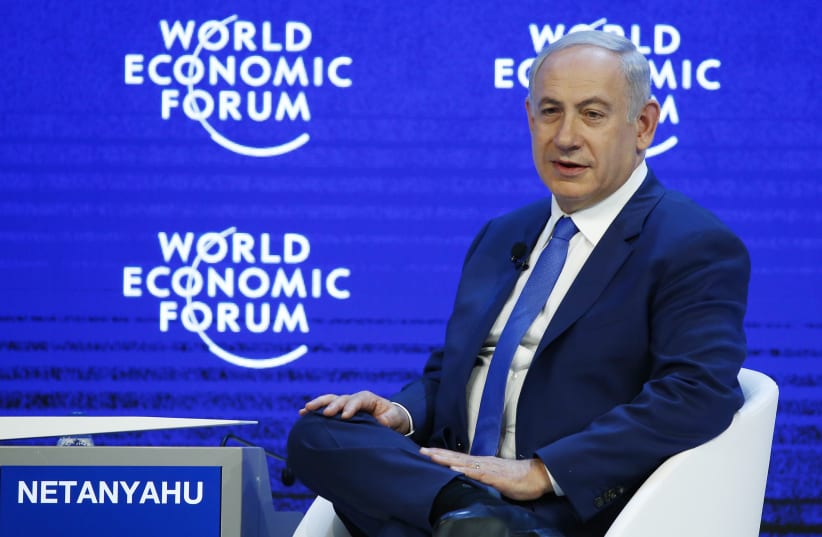PM to tell colleagues if they don't 'fix' Iran deal, Trump will 'nix' it
The Israeli PM is slated to meet President Trump, German Chancellor Angela Merkel and French President Emmanuel Macron to discuss the Iranian nuclear deal at the World Economic Forum in Davos.
